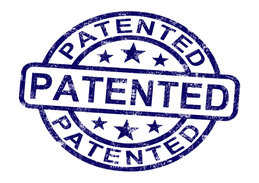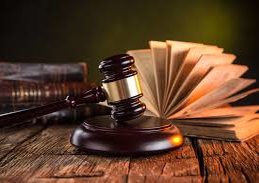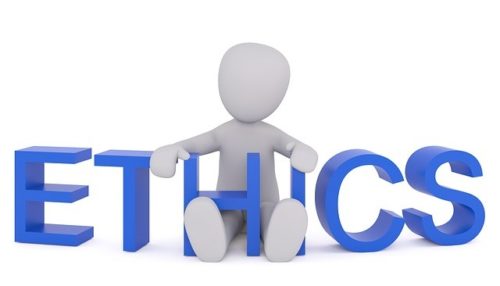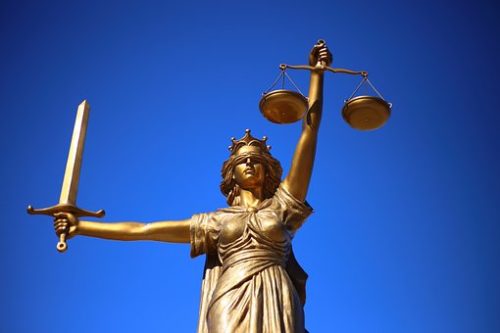-
Fundamentals of Patent Prosecution - 2.0 Credit Hours In this timely, and compelling, CLE program Attorney Tyler Dunham covers Patent Prosecution or alternatively: The Basics of How to Obtain a Patent. Attorney Dunham will take participants, from beginning, to the end of how to obtain a patent. The program begins with information about the USPTO and types of patents. Mr. Dunham will continue the program with an explanation of the application process and the paperwork involved. Mr. Dunham will, also, cover the prosecution process in great detail. The program will conclude with a discussion on international patents and patent enforcement. This program is for anyone who wishes to learn more about patents and the patent process. Agenda General Info About the USPTO What Types of Tech can be Patented? 35 USC 101 What Types of Tech cannot be Patented? Who Can File Patent Applications? Types of Applications Other Miscellaneous Paperwork Usually Filed Patent Searching The Prosecution Process After Allowance International Patenting Patent Enforcement
-
Fundamentals of Civil Litigation in Federal Court In this timely, and compelling, CLE course Attorney Thomas R. Schuck covers the Fundamentals of Civil Litigation in Federal Court. The program begins with an overview of how to commence an action and case management. Attorney Schuck continues by going over the process of summary judgment, arbitration, and trial. Mr. Schuck concludes the program with a discussion on judgments and appeals. This program is a must listen for anyone who wishes to learn more about the FRCP. Agenda Commencing An Action Case Management and Discovery Summary Judgement Arbitration and Mediation Trial Judgement and Post Judgement Issues Appeal
-
All Courses Approved by The Florida Bar Florida 6 Credit Ethics and Technology Bundle
-
All Courses Approved by The Florida Bar Florida 3 Credit Technology Bundle
-
All Courses Approved by The Florida Bar Florida 3 Credit Ethics and Professionalism Bundle
-
Florida 28 Credit Bundle with Ethics & Technology
All Courses Approved by The Florida Bar
-
Florida 28 Credit Bundle with Ethics & Technology
All Courses Approved by The Florida Bar
-
Fair Debt Collection Practices Act
Fair Debt Collection Practices Act
Faculty: Boyd W. GentryThe Fair Debt Collection Practices Act (FDCPA) regulates the behavior of debt collectors who attempt to collect personal, family, or household debts on behalf of creditors. Compliance with the FDCPA is crucial to avoid legal repercussions as it provides strict guidelines on acceptable debt collection practices, prohibits abusive, false or misleading behavior, and imposes civil liability for violations.
Agenda
Overview of the FDCPA
-
Briefly introduce the FDCPA and its purpose
-
Provide a high-level overview of the topics to be covered in the session
Why comply with the FDCPA?
-
Discuss the consequences of non-compliance with the FDCPA
-
Explain the benefits of compliance for debt collectors
Who is a “debt collector” regulated by the FDCPA?
-
Define the term “debt collector” under the FDCPA
-
Explain who is regulated by the FDCPA and who is not
To what “debts” does the FDCPA apply?
-
Discuss the types of debts that are covered by the FDCPA
-
Explain the types of debts that are not covered by the FDCPA
Finding the Debtor and what can and must I say?
-
Discuss the rules and limitations on contacting debtors
-
Explain what information debt collectors must provide to debtors when contacting them
Communicating with Third Parties
-
Discuss the limitations on contacting third parties to obtain information about debtors
-
Explain the types of information that can and cannot be disclosed to third parties
Validation of debts [15 USC 1692g]
-
Discuss the requirements for debt validation under the FDCPA
-
Explain the timeline for debt validation and what information must be provided to debtors
Cease Communication Requests
-
Explain the rules for honoring requests to cease communication from debtors
-
Discuss the consequences of failing to honor a cease communication request
Prohibited debt collection practices
-
Discuss the types of debt collection practices that are prohibited under the FDCPA, including harassment or abuse, false or misleading representations, and unfair practices
-
Explain the consequences of engaging in prohibited debt collection practices
Legal actions and civil liability
-
Discuss the legal actions that debt collectors can take under the FDCPA to collect debts
-
Explain the civil liability that debt collectors can face for violating the FDCPA
-
-
Ethics in Business Law In this timely and compelling CLE program Attorney, Todd Kulkin, presents Ethics in Business. Mr. Kulkin starts the program with a discussion on Confidentiality, Conflict Of Interest, and Solicitation & Networking within the ABA model rules. The program continues with an overview of No-Contact Rule, Referral Fees, and Communicating With Unrepresented Persons. Additionally Mr. Kulkin will cover Attorney as third-party neutral, Trust account issues, and Non-law practice activities, The program concludes with an explanation if a lawyer should take equity. This program is a must for any attorney. Agenda:
- Confidentiality
- Conflict Of Interest
- Solicitation & Networking
- No-Contact Rule
- Referral Fees
- Communicating With Unrepresented Persons
- Attorney as third-party neutral
- Trust account issues
- Non-law practice activities
- Should You Take Equity?
-
Ethics Compliance for Solo Practitioners In this timely and compelling CLE program Attorney, Todd Kulkin, presents Ethics Compliance for Solo Practitioners. Mr. Kulkin starts the program with a discussion on Confidentiality, Conflict Of Interest, and Solicitation & Networking within the ABA model rules. The program continues with an overview of No-Contact Rule, Referral Fees, and Communicating With Unrepresented Persons. Additionally Mr. Kulkin will cover duties to prospective clients. The program concludes with an explanation if a lawyer should take equity. This program is a must for any attorney. AGENDA:
- Confidentiality
- Conflict Of Interest
- Solicitation & Networking
- No-Contact Rule
- Referral Fees
- Communicating With
- Unrepresented Persons Attorney as third-party neutral
- Trust account issues
- Non-law practice activities
- Duties to Prospective Clients




